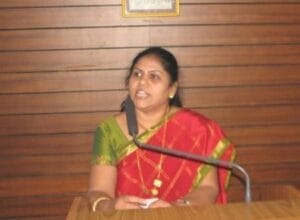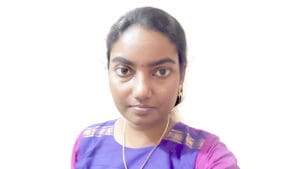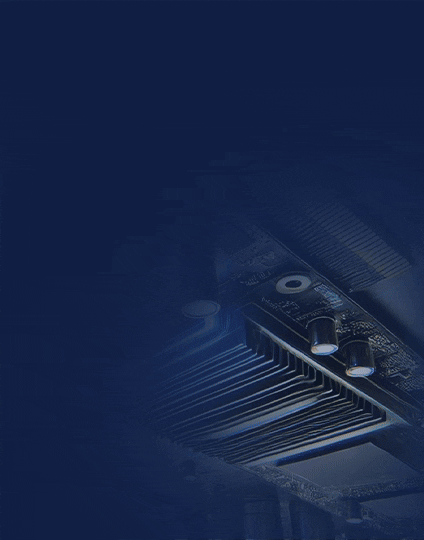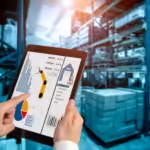Explore Sreeja’s journey as a female Software Developer. Uncover challenges, advice for women in engineering, and insights on her evolving career in this dynamic field.
Women In Engineering
FPGA Insights has conducted an exclusive interview with Sreeja, who is working as a Software Developer at Huawei, to gain valuable insights into her experiences as a woman in engineering.

What’s your Name, job title & area of research/work?
My name is Sreeja Singh, and I work as a Software Developer at Huawei Tech.
My primary area of work is in software development for communication technologies, where I focus on building efficient, scalable, and secure solutions that support next-generation networks and applications.
What sparked your interest in engineering? Can you describe the moment you realized this was a field you’d like to pursue?
What truly sparked my interest in engineering was my fascination with problem-solving. I’ve always enjoyed tackling puzzles and logical challenges, and I realized that engineering was like solving real-world puzzles with technology.
The defining moment came when I attended a robotics workshop in college. Watching how hardware and software came together to create something tangible and intelligent left me amazed.
That experience confirmed that engineering was the path where I could combine creativity and logic to make a real difference.
What are your experiences of being a female engineer?
In my early days as a software developer, I still remember walking into my first big project meeting. Out of twenty engineers, I was the only woman in the room.
At first, I felt nervous, everyone was speaking so confidently in technical terms, and I hesitated to share my ideas. But when a critical bug came up, I realized I had already solved something similar during my internship. I gathered my courage, explained the solution, and to my surprise, the entire team stopped, listened, and then implemented my approach. That moment was a turning point for me. It showed me that what really matters is not whether you’re male or female, but the value you bring to the table.
Of course, there have been times when I had to work harder to be taken seriously, but experiences like that remind me that my voice is just as important. And now, when younger female engineers join, I make it a point to encourage them to speak up, because I know exactly how it feels to be in their shoes.
In my early days as a software developer, I still remember walking into my first big project meeting. Out of twenty engineers, I was the only woman in the room. At first, I felt nervous, everyone was speaking so confidently in technical terms, and I hesitated to share my ideas. But when a critical bug came up, I realized I had already solved something similar during my internship. I gathered my courage, explained the solution, and to my surprise, the entire team stopped, listened, and then implemented my approach.
That moment was a turning point for me. It showed me that what really matters is not whether you’re male or female, but the value you bring to the table. Of course, there have been times when I had to work harder to be taken seriously, but experiences like that remind me that my voice is just as important. And now, when younger female engineers join, I make it a point to encourage them to speak up, because I know exactly how it feels to be in their shoes.
Can you tell me more about your career path so far?
I began my journey studying computer science, where hackathons and coding challenges sparked my passion for problem solving.
My first role at a startup gave me hands on experience and resilience, and later I transitioned to Huawei. Here, I work on large scale projects with global teams, which has helped me grow both technically and personally.
What has been your most challenging experience as an engineer?
One of my most challenging experiences was early in my career when I was assigned to a project with extremely tight deadlines and technologies, I wasn’t fully familiar with.
At first, I felt overwhelmed, and there were moments of self-doubt, especially being one of the few women in the team. But instead of giving up, I worked late nights, sought help from mentors, and kept learning on the go.
The project was eventually delivered successfully, and that experience taught me resilience, teamwork, and the importance of believing in myself even when things look impossible.
What is the most exciting thing about your job?
The most exciting thing about my job is the constant innovation. At Huawei, I get to work on technologies that are shaping the future whether it’s 5G, AI, or cloud solutions.
Every project feels like a chance to solve a puzzle that could impact millions of people. The thrill of turning an idea into a working solution, and then seeing it make a real difference, is what keeps me motivated every single day.
What kind of impact would bring you great satisfaction in your work?
For me, great satisfaction comes from knowing that the solutions I build don’t just stay in code they actually make people’s lives easier.
Whether it’s improving network reliability so someone can stay connected with their family, or contributing to technologies like 5G that open doors for innovation across industries, I feel fulfilled when my work creates a real world impact.
Even the smallest improvements in performance or user experience feel meaningful when I know they’re touching millions of lives.
What do you think needs to be done to improve the statistics in terms of women’s participation in engineering?
I think improving women’s participation in engineering starts with early encouragement. Many girls don’t see engineering as an option simply because they aren’t exposed to role models or hands on experiences early on. Schools and families can play a big role by encouraging curiosity in technology and science without stereotypes.
At the workplace level, creating inclusive environments is equally important things like mentorship programs, equal growth opportunities, and supportive policies can make women feel they truly belong in this field. Finally, we need to highlight more success stories of women engineers, so young girls can see that they too can thrive in this profession.
What do you enjoy most and least about engineering?
What I enjoy most about engineering is the problem solving aspect, being able to build solutions that impact people’s lives. I love the creativity involved in coding, designing, and optimizing systems, especially when I see my work being used in real-world applications.
What I enjoy least is when gender biases or stereotypes overshadow technical skills. Sometimes, as a woman, you feel you need to prove yourself more than your male counterparts. While things are improving, it’s still a challenge that can be discouraging at times.
Who has been your greatest support, coach, and mentor across [Industry], and why?
My greatest support has always been my family, especially my parents. They never once questioned my decision to go into engineering, even when people around us thought it was too “tough” for a girl. Their constant belief gave me the courage to push through.
In terms of mentors, I’ve been fortunate to have a senior woman engineer at Huawei who guided me in my early days. She not only helped me with technical challenges but also showed me how to navigate a male dominated industry with confidence. Watching her balance expertise and leadership has been truly inspiring.
What is it like to be a woman in engineering? Do you feel that your gender gives you a different perspective and experience from your male counterparts? Any advantages?
Being a woman in engineering is both challenging and empowering. I do feel my gender gives me a different perspective I tend to focus more on collaboration, empathy, and detail oriented problem solving, which often complements the technical approaches of my male counterparts.
Of course, there are times when I’ve felt underestimated just because I’m a woman, but I see that as an opportunity to prove through work rather than words.
As for advantages, I believe diversity itself is the biggest one. Women bring fresh thinking and balance to teams, and that often leads to more innovative and inclusive solutions.
What advice do you have for women interested in engineering? What kinds of practical experience should they have? What technical skills should they pick up?
I’d say don’t be afraid to dive in build stuff, break stuff, and learn from it. Take up small projects, join hackathons, or contribute to open-source, because that’s where you really grow.
Learn the basics well coding, problem-solving, system thinking but also stay curious about new tech.
And most importantly, believe in yourself. Engineering isn’t about being perfect, it’s about staying curious and never giving up.











